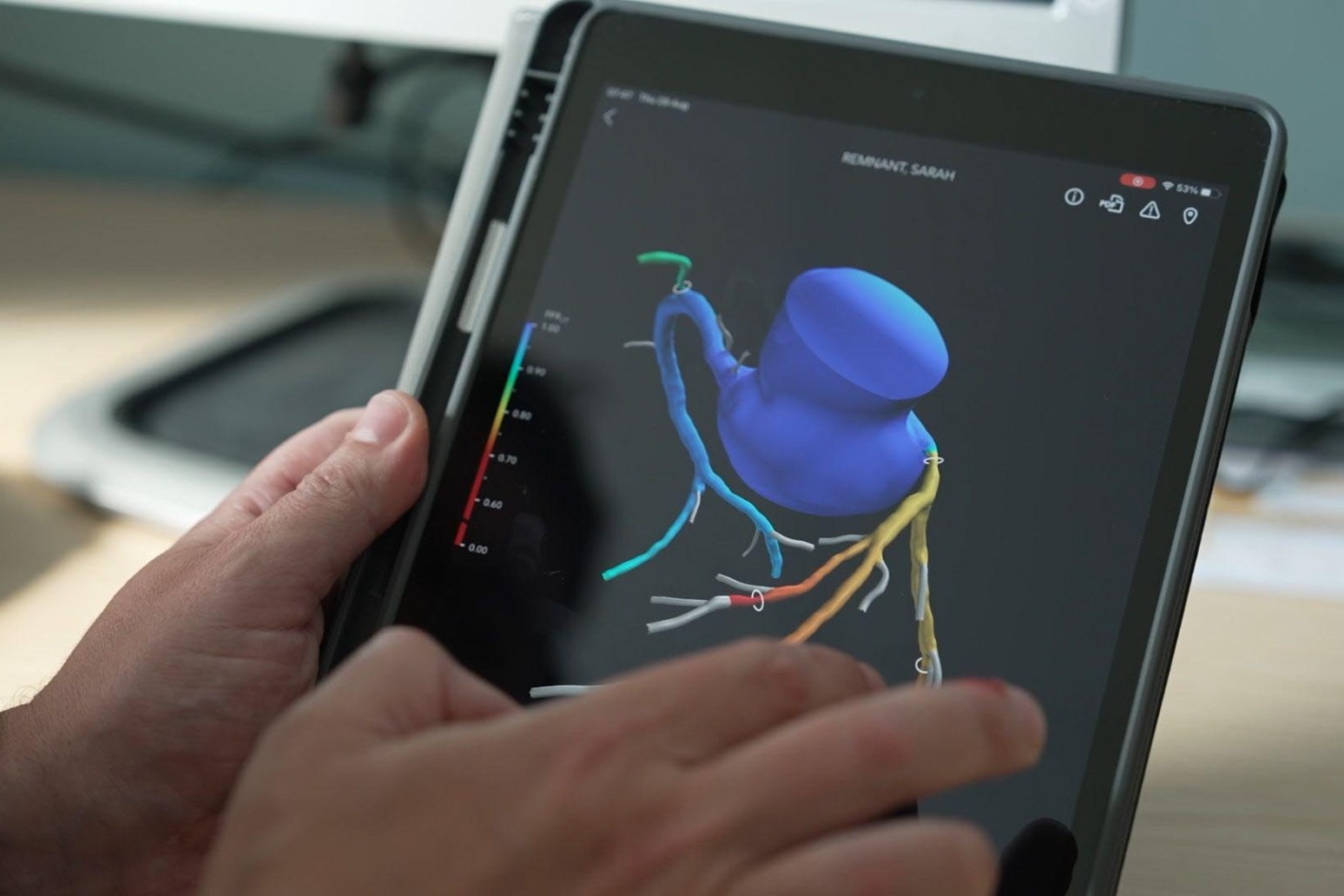Listeners:
Top listeners:
-
 play_arrow
play_arrow
Rother Radio (128K) Love Local, Love Music!
-
 play_arrow
play_arrow
Rother Radio (64K) Love Local, Love Music!
-
 play_arrow
play_arrow
Rother Radio (Doncaster) (128K) Love Local, Love Music!
-
 play_arrow
play_arrow
Rother Radio Xmas Love Local, Love Music!
-
 play_arrow
play_arrow
Rother Radio – Special Announcement Love Local, Love Music!


Since 2021, it’s spared hundreds of patients unnecessary surgery
“Sci-fi-like” 3D heart scans have saved the NHS an estimated £9.5 million since their rollout in 2021, data shows.
The technology cuts the needs for invasive tests and speeds up diagnosis by turning a CT scan into a three-dimensional image to be analysed by artificial intelligence (AI).
More than 24,300 patients have received the scan and data shows this has allowed hundreds to avoid invasive procedures and saved the NHS the equivalent of about £390 per patient, NHS England said.
Coronary heart disease sufferer Sarah Remnant, from Portsmouth, said her case was not a “classic” one but was quickly spotted thanks to the technology.
Days after the 3D scan Ms Remnant, then aged 50, had surgery to fit a potentially life-saving stent.
Now recovered, she said: “I wasn’t a classic case but thanks to this technology, the cause of my symptoms was quickly identified – which possibly saved my life.
“The consultant talked me through the scan, which was empowering as I could fully understand my diagnosis and the plan for treatment.
“I feel amazing now and am very grateful that I had access to this as it was so reassuring to have that extra information at such a worrying time.”
Previously, patients suspected of having coronary heart disease received a CT scan if a “narrowing or blockage” in a coronary artery was suspected, NHS England said.
To confirm a diagnosis many would then need an invasive angiogram.
This involves clinicians inserting a catheter into a blood vessel and injecting dye to make blocked blood vessels show up on an X-ray.
A study funded by Medical Research Council looked at more than 90,000 NHS patients between 2017 and 2020 and the tool was used on nearly 8,000 of them.
The 3D scans reduced the number of patients needing an invasive angiogram test by 7%.
This was cut by a sixth, or 16%, among those later found to require no further treatment, it said.
As a result of the 3D scan, now available in 56 hospitals in England, an invasive angiogram is only recommended if the patient may need surgery or a stent.
The tool can also suggest the size and position of stent most suitable for the patient.
Dr Vin Diwakar, national director of transformation at NHS England, said: “It is fantastic see that these revolutionary AI-driven 3D heart scans, supported by NHS England, are transforming cardiac care by significantly reducing the need for invasive tests, speeding up diagnoses, conserving NHS resources, and enabling clinicians to advise patients on the best treatment for their condition.”
The AI-driven analysis is called Heartflow and more than 6,989 people have had access to it in the last year, NHS England said.
Coronary heart disease affects around 2.3 million people in England and is the most common type of heart disease.
It develops when fatty material builds up inside the coronary arteries, which can restrict blood flow and oxygen supply to the heart.
Patients are at risk of heart attacks or heart failure.
NHS England rolled out the technology through the MedTech Funding Mandate programme, which aims to ensure patients and the NHS receive clinically effective and cost-saving medical technologies faster and fairer.
It said: “The sci-fi-like tool is helping give tens of thousands of patients at risk of potentially life-threatening coronary heart disease a faster and more accurate diagnosis, while also freeing up capacity in the NHS.”
Show less
Published: by Radio NewsHub
Written by: Radio News Hub
Similar posts
Search Rother Radio
Contact Us
- https://www.rotherradio.co.uk
- 01709 257 175
- studio@rotherradio.co.uk
About Us
Rother Radio – Love Local, Love Music! → Discover more
Our Partners
Rother Radio is owned by Rotherham Broadcasting CIC








